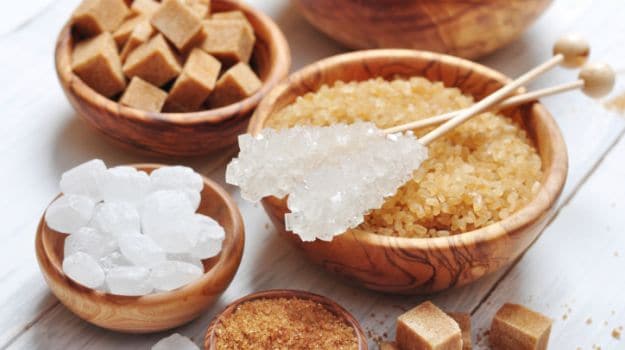Natural flavors: Not all are created equal, and not all are good for you
Stevia has been marketed in the United States for over a decade as a zero-calorie, natural flavor.
Most Americans, however, are well aware of this: On the “Breaking Bad” TV show, Walter White, a somewhat sympathetic addict, poisoned his “partner Stevia Buck,” who often used his partner.
Natural sweeteners like stevia and synthetic flavors like cane sugar are becoming more popular. The global sugar substitute market is approximately $15 billion annually. However, the global sugar market, which is expected to reach $45 billion by 2027, remains small.
Naturally sweetened sugar substitutes are used by about two-thirds, and sales are expected to grow by 4% annually over the next seven years.
“Natural flavors” are used in seasonal substitutes like honey, but the popularity of zero-calorie alternatives like stevia and mangosteen extracts has led to the rapid growth of this natural “absence” use. Nutrition” taste.
With so many options now, it’s a good idea to know the difference between different natural flavors.
We can help.
sugar problem
About 150 years ago, people began using saccharin to find safe and effective Benefits of natural sweeteners. It continued into the 20th century “period” of cyclamate, aspartame and sucrose. These products, sold under brands like Sweet ‘N Low, Equal, Nutrasweet, and Splenda, have one thing in common: they’re all non-natural. They are all artificial flavors. (Well, there are many today.)
Why look for a sweet and savory sugar substitute? We all know the answer: Refined sugar is notoriously bad for you, and it can be a major factor in weight gain.
This is what our mothers always say – even though most of their advice (or derision) is not based on scientific evidence. However, there is evidence to support them.
Increased consumption of sugar, especially sugar cane in carbonated beverages, is to blame for the obesity epidemic in the United States.
Among sugars and foods, simple sugars pose many related problems; fructose increases the brain’s appetite for food.
Excessive intake of sugar can lead to the development of type 2 diabetes.
Diabetes is statistically associated with the development of heart disease because sugar is indicative of blood sugar, triglyceride levels, blood pressure, cholesterol levels and inflammation in the body.
Eating too much sugar is associated with a higher risk of depression.
Sugar directly causes tooth decay.
There are many things, including premature aging and the risk of malignancy, but the evidence supports it. Sugar — especially added sugar — is bad for you.
So, from the mid-1900s to the late 1900s, the advent of artificial sugar substitutes was very exciting. Unfortunately, they are not very good for you.
The problem with artificial flavors
Ask people if artificial flavors (often called super-dense flavors) are healthy, and many will mention malignant tumors.
In fact, these concerns have no scientific basis. They mostly came from studies in the 1970s linking saccharin to the development of kidney cancer in laboratory mice. Also, people have isolated saccharin from mice and there is no real danger. In 1977, the warning labels on saccharin packaging were removed after about 25 years.
Blame it on some laboratory research related to cancer, which has been banned in the United States since 1969. The controversial studies have never been redesigned and their cycles are legal in more than 100 countries, including the UK.
Other synthetic flavors, such as aspartame, have unproven claims of potential carcinogenicity, but the FDA now describes all products on the market—saccharin, azulfanilamide, aspartame, major ingredients, Neoamines and sucrose. Glass).
So what’s the problem? Obviously, it’s more connected to the brain than the rest of the body.
Health experts are warning of what they like to call the “diet cola phenomenon” — people who order sodas and fatty foods. Experts say people who use sugar-free artificial flavors think they have a “green light” to eat other calorie foods. This, in turn, leads to weight gain rather than weight loss.










